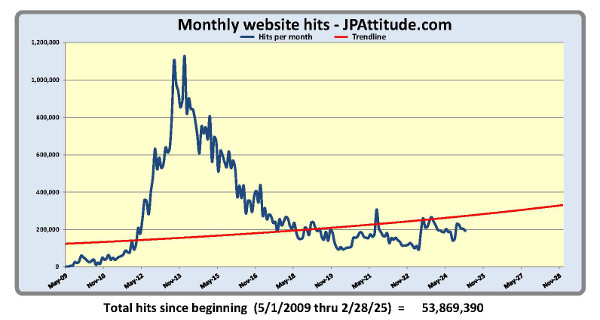About those evil oil company tax breaks
September 23, 2011
 Two weeks ago last night, President Obama stood before a joint session of congress and outlined his latest greatest idea for solving the U.S. unemployment problem by spending our money, emphatically telling the assembled congresscritters seven different times to “pass this bill right now!”
Two weeks ago last night, President Obama stood before a joint session of congress and outlined his latest greatest idea for solving the U.S. unemployment problem by spending our money, emphatically telling the assembled congresscritters seven different times to “pass this bill right now!”Nothing like being scolded by the class clown, especially when the clown doesn’t even have his homework done.
Turns out Mr. President didn’t actually have a bill to pass but promised to have one “sometime in the next couple weeks.” After all the pass-this-bill-right-now stuff in his speech, the reaction of journalists to the news that no such bill actually existed was less than positive (to say the least), so White House staffers worked all weekend and on Monday—Monday evening, actually—the White House scurried over to Congress with “The American Jobs Act.”
Unfortunately, while the White House was dithering and scurrying, a Republican congressman named Louis Gohmert introduced his own bill to solve the unemployment problem and he called his bill “The American Jobs Act,” too. Just like with copyrights, the first legislation introduced gets to use the name, that’s how it works. So now the White House has brochures, websites, ad campaigns, and a teleprompter loaded with speeches, all promoting the name of some Republican guy’s legislation.
Someday I’m gonna run C-Span and the Comedy Channel on split screen, side by side on my TV, just to see which one is funnier.
The executive branch of the federal government doesn’t actually legislate. Although he taught a class on constitutional law at the University of Chicago Law School for a few years—part-time—I don’t think the president is overly familiar with the actual document because the Constitution is quite clear that Congress legislates, the President signs or vetoes, and the Supreme Court rules afterward on what it all means and whether things are kosher. Most of us learn that basic kind of stuff in grade school but, remember, Obama was attending a Muslim madrassa in Indonesia during his grade school years and those doggone madrassas are notoriously weak on the subject of constitutional government.
Although very strong on teaching little kids to chant Koran verses in Arabic, so there are compensations.
Even beyond the way he seems to ignore it as chief executive, we know the president never read the Constitution because of what he said in his first State of the Union speech, on January 27, 2010. He said, “We find unity in our incredible diversity, drawing on the promise enshrined in our Constitution: the notion that we are all created equal…” which is not in the Constitution. It’s in the Declaration of Independence. Maybe the University of Chicago should track down the students Obama taught and give them all a refund.
Because Congress actually does the legislating, Obama’s American Jobs Act is merely a suggestion—the president’s way of saying to his own political party, “Hey, guys, this is something I would like passed and I’ve gone to the trouble of writing it all down the way I want it so please take a look, retype it on your own stationery, and formally introduce it as a bill.” Notice the “please” part. Congress can ignore the president if he sends them something stupid—like his proposed budget for fiscal year 2012, for instance. They can also change the president’s bill dramatically and then introduce it. Whatever they want.
This week, the number one and two Democrats in the senate, Harry Reid and Dick Durbin, have both admitted that Democrats have no plans to introduce the president’s bill anytime in the near future. So much for “pass this bill right now!” If Barack Obama was Pinocchio, his nose wouldn’t fit on Air Force One anymore.
If I had to guess, I would say the president’s American Jobs Act is such a load of malodorous crap that no Democrat in congress wants to be associated with it. They’re probably drawing straws right now—short straw has to introduce the president’s bill. They should make Frank Lautenberg do it. He’s so old and senile he doesn’t know what’s happening anyway and if he loses in the next election because he introduced the president’s bill who would really care?
That’s my suggestion, Democrats. Take it for what it’s worth.
It’s awkward talking about a bill that doesn’t exist yet, especially when the name is in dispute and nobody wants to touch it with a ten foot pole, but talk about it we must because once you get past the comedy, silliness, and incompetence of the White House which created it, we are left with two dangerously false ideas which seem to thrive under the mad, Dr. Frankenstein-like husbandry of progressives: the idea that rich people are not paying their fair share of taxes and the idea that oil companies enjoy special tax breaks and subsidies.
The first idea is more about philosophy than statistics. No matter how many times you prove that wealthy Americans carry almost the entire tax load and no matter how high you raise their tax rates, the progressives, socialists, and communists will never think it’s enough. Philosophically, they hate rich people and that’s all there is to it—even when they happen to be rich people themselves. Thanks to President Obama’s even-newer latest greatest idea, whimsically named “Living Within Our Means and Investing in the Future,” which was introduced this week (but also doesn’t exist as any kind of actual bill), Americans are fiercely engaged in the debate about whether to rape and pillage the “wealthy” some more: the president has proposed raising their taxes by $1.5 trillion.
Apparently he misread the Aesop fable about killing the golden goose and took the notion as a recommendation instead of a warning. Maybe that’s how they teach Aesop in the madrassa.
Special tax breaks for oil companies are another matter, a factual matter, because they simply do not exist. Squeezing more blood from the oil company turnip is one of those mythical pie-in-the-sky pipe dreams that liberals are so fond of, believe in so strongly, and rely upon so thoroughly to support their paradigm of the universe that they become violently angry when you challenge them. Try it sometime if you don’t believe me. Walk up to a liberal (if you don’t know how to find one, they usually drive Subaru Outbacks or Toyota Priuses real slow in the left lane, carry some kind of goofy canvas bag into the grocery store, smell like tofu & cannabis, and wet their pants when they see a picture of Sarah Palin) and say to him, “Sorry, dude, but oil companies don’t actually get special tax breaks. It’s a myth.”
But wear a cup when you do it, I beg of you. Just in case you want children some day.
President Obama’s American Jobs Act—or whatever he ends up naming it now that the name is taken—proposes various “offsets” (otherwise known as tax increases) to pay for its $447 billion in spending and those “offsets” come from reducing the itemized deductions of high-income people ($417 billion) and ending the fictional tax breaks of oil companies ($40 billion).
The so-called oil company tax breaks fall into two categories:
1. Expensing of assets
When a business spends money to make money, that’s called a business expense and is deducted from revenue when calculating the amount of money subject to income taxes. Simple as a pimple. Everybody knows this, right? You don’t pay taxes on your revenue; you pay taxes on your revenue minus expenses.
A problem arises because our beloved Internal Revenue Service doesn’t want businesses deducting in one year money spent on things that last more than one year. If you build an office building that will last thirty years, for example, they don’t want you deducting the whole cost of that building in the first year. So they make various rules about how businesses can deduct the costs of fixed assets and the result of this calculation is called “depreciation.” There are literally thousands of pages of IRS regulations describing exactly how businesses must calculate depreciation for various assets. Many times there are multiple allowable choices for the same asset and many times Congress will muddy the picture by legislating special rules to encourage business investment.
(Bear with me, I’m getting there.)
An oil well presents unique problems when it comes to depreciation because you can’t be sure how long it will last. Maybe it will be dry and not last a month, in which case you would be justified in simply deducting all the costs in the first year. But maybe it will be a gusher that produces oil for fifty years. What to do, what to do?
Recognizing the unique needs of the oil industry (and mining industry), the IRS wrote special regulations for depreciation which take into account the uncertainty about how long fixed assets will have value. And they call the depreciation by a different name, “depletion,” because that word better expresses the underlying factor driving the length of the asset’s life: it depends more on the amount of oil in the ground than the durability of the physical assets.
Congratulations! Already you’ve learned something that many people with master’s degrees in business administration never seem to learn and nobody in the White House understands: depletion is not a special tax break for the oil industry, it’s just depreciation called by a different name.
The regulations the IRS wrote for depletion require a business to make a professional estimate every single year about how much longer the oil in the ground will last, then deduct accordingly. If the estimate says an oil well will last ten more years, the business can deduct 10% of the remaining costs on its income tax return. You can imagine how onerous this task gets. Every year you have to hire a geologist, equip the guy with the latest tools, and then pay him to estimate how much oil is left in the ground. Small oil producers can’t afford that!
So the IRS, ever magnanimous, devised a short cut. If you’re a small producer—no Exxons or BPs allowed—the IRS will let you skip the geologist and the calculation and simply deduct 15% of your revenue. This is called “percentage depletion” and is one of the favorite targets of liberals who want to attack the oil industry. Removing percentage depletion is one of the “offsets” in President Obama’s jobs bill but now that you’ve waded through my explanation you know three things the president apparently doesn’t:
A. Percentage depletion is simply a shortcut method for calculating deprecation costs, not a special tax break.Other asset-expensing changes proposed by the president are similarly useless. For instance, some “intangible” drilling costs are allowed to be expensed in the year they are incurred but the president wants them depreciated—a meaningless change that affects merely the timing of the deduction, not the amount. These proposals are all smoke and mirrors intended to fool Americans into thinking that special tax breaks for Exxon are being eliminated and the government will receive more money. Don’t fall for it.
B. It’s not available to the big multi-national oil companies that President Obama constantly demonizes in his speeches, so eliminating it doesn’t affect them at all.
C. Eliminating percentage depletion merely changes the method of calculation. It doesn’t eliminate the actual deduction so in the long run it will not raise extra tax revenue. (In fact, wherever percentage depletion underestimates deductions the result will be less tax revenue. Duh.)
2. Section 199 deduction
The one big “offset” in Obama’s jobs bill that will actually increase tax revenues is the proposal to eliminate the Section 199 deduction for oil companies. A little history:
Congress is constantly trying to encourage exports by tinkering with tax law. In 2000 this resulted in Section 114 being added to the IRS Code, but that caused international strife. In 2001, the World Trade Organization ruled that Section 114 was an illegal subsidy of exports because it gave exporters a special deduction on their income tax returns. In response to that ruling, Congress turned around and passed something similar but different enough to be legal: Section 199. Section 199 gives a 9% deduction to every American company that produces, sells, or rents something tangible on the theory that if Congress encourages domestic production it will inevitably result in more exports.
Section 199 deductions are enjoyed by thousands of businesses that have nothing to do with oil. It’s probably more difficult to find a business that does not get a Section 199 deduction than it is to find one that does. What’s more, the whole purpose of encouraging exports is to stimulate job creation and the oil industry provides over nine million jobs in this country so if any industry should get a Section 199 deduction...
Liberals, in a constant fever of oil company hatred, already partially eliminated the Section 199 deduction for oil companies. In 2008, the Harry Reid/Nancy Pelosi 110th Congress limited the Section 199 deduction for the oil industry to 6% instead of 9%. Mathematically that works out to a 1% increase in taxes for no other reason than the fact that liberals don’t like oil companies.
Never mind that the oil industry pays 25% of total income taxes collected by the U.S. government, employs 9,200,000 Americans, produces 8% of our national GDP, and provides the energy that fuels the entire economy. Never mind all that. As with rich people, liberals don’t like them and that’s all that matters.
When the President of the United States stood before a joint session of Congress two weeks ago and talked about “tax loopholes for oil companies…” well, there’s only two ways to describe that speech.
The man was either lying or ignorant.
“My formula for success? Rise early. Work late. Strike oil.” – J.Paul Getty
From Reno, Nevada, USA Tweet
August 15, 2012 - This is an interesting article for your viewers to read and those attacking energy producers who actually create real jobs: "Taxation Hero: ExxonMobil Pays $3 In Taxes For Every $1 In Profit." It goes hand in hand with your column. - M.C., Nevada
September 24, 2011 - "The man was either lying or ignorant." Both. - Katherine, Reno
September 24, 2011 - I used to believe President Obama when he talked. Used to. - Sheila P., Virginia
September 24, 2011 - All I know is the dumbshit wants to spend another half billion dollars. It's almost a joke. - Walter, Wyoming
September 24, 2011 - "The man was either lying or ignorant." Both. - Katherine, Reno
J.P. replies: I don’t whether you’re serious but you might be right. I think Obama is the worst possible mixture of ignorance and dishonesty.
September 24, 2011 - I used to believe President Obama when he talked. Used to. - Sheila P., Virginia
September 24, 2011 - All I know is the dumbshit wants to spend another half billion dollars. It's almost a joke. - Walter, Wyoming













